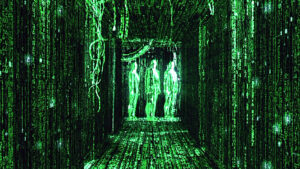

However great 2025 turns out to be at the movies, it is unlikely to surpass what happened in Hollywood two and half decades ago
The trajectory of the ‘golden age’ is that it is only always proclaimed in hindsight. And so, it was in the 1970s that the ’50s were considered the golden age, with reference to movies, in particular.
Likewise, in the ’90s, we looked back at the ’70s as the golden age, instead. The sudden thrust towards nostalgia—which is inevitably an exaggeration—the ’90s are now often lovingly, longingly looked at as what a fine decade that was—for both movies, and music—or pop-culture, in general.
The reason for this is rather obvious. Consider that ‘golden age’ essentially refers to the best of the past funneling into the present. A playlist of the greatest hits automatically ignores the junk that also got created alongside, creating an illusion/impression that the material was so much better than the daily/weekly gunk getting generated at present.
Be that as it may, is there a case for a particular year, when artistic entertainment peaked to such an extent that it made it virtually impossible for future generations to surpass it?
You might have to believe a little bit in astrology, with too many stars aligning for too many blokes in one sub-city (Hollywood), to be able to determine exactly why that must have happened. But that’s precisely what happened in 1999—that 2024, we’re stepped out of, can at best be a silver jubilee celebration of.
Waking up to this fact, in hindsight of course. Esquire magazine, in 2014, described 1999 as the “last great year in the movies,” citing as evidence films like:
Wuchowski Brothers’ The Matrix, rebooted sci-fi, and probably even influenced Christopher Nolan’s cinematic universe.
M Night Shyamalan’s The Sixth Sense, that revived the twist in the tale, which hasn’t been surpassed since.
Daniel Myrick, Eduardo Sanchez’s The Blair Witch Project, that birthed the shaky, digital camera and grey footage, anticipating the age of YouTube.
David Fincher’s Fight Club, Sam Mendes’s American Beauty: both gloriously questioning machismo, and the great American suburban dream.
Tom Tykwer’s Run Lola Run, merging video-game, and music-video, with a mystery-thriller.
PT Andersen’s Magnolia, deepening hyperlink cinema.
Spike Jonze’s Being John Malkovich, for what’s now called high-concept film.
And still several others—all in just one glorious year, that redefined filmmaking, given the originality of ideas, their shock-value for audiences, and a complete break from traditional notions of craft to explore “newfangled narratives and effects.”
Besides that they were all directed by fresh, talented filmmakers, what’s common to all these films from one year?
The fact that, for the most part, they comprise mainly medium-budget, middle-of-the-road movies, coming out of a screenwriter/filmmaker’s head, rather than adaptations of existing material, that ever since the turn of the century began to be progressively considered unfit for big-ticket cinema entertainment by gigantic studios. And, no, these were not Oscar season movies either.
Was 1999 the last year for Hollywood studios investing in a star-system to ensure lines outside theatres, as excited to see Kevin Spacey or Bruce Willis in a new avatar, as they were happy to have watched American Beauty or The Sixth Sense on their way out? Possibly. For one, there wasn’t a single super-hero film among top 10 grossers of 1999.
And, hey, I haven’t even mentioned Roger Michell’s cutesy Hugh Grant, Julia Roberts starrer Notting Hill, also from 1999, which you will notice from social media, still excites serious passion among audiences of a certain vintage. Because you know what? Romantic comedies hardly exist anymore!
If medium-budget cinema is still created, where would you watch them? On the web/app, of course—where Martin Scorsese or Coen Bros’ often go with their material now. And which is really what’s taken over the arts side of entertainment; leaving Hollywood to exclusively grapple with franchises and blast-fests.
Would it be even better for middle-brow content to be seen as a web-series instead, since it’s more bang for the buck? Evidently. And this is why, in a rare instance of giving credit while it’s due, we call the current wave the golden age of television.
How and when did that begin, for us to truly appreciate the cinema-like quality that TV is capable of? With The Sopranos. On HBO. Which year was that? 1999!
Curating for an arts festival that was in its 2oth year (in 2019), I was basically looking at films that would also complete 20 years, so they could play as a sub-section. At some point, we realised, man, 1999 deserves an entire, year-long festival of its own! It’s still a great idea for how every old movie appears to be re-releasing at the cinemas lately.
Just look at some of the other movies we glanced through from the same year:
Stanley Kubrick’s Eyes Wide Shut.
Kimberley Peirce’s Boys Don’t Cry.
Michael Mann’s The Insider.
Frank Darabont’s The Green Mile.
Forget middle-brow, even with potty humour, what did 1999 serve up, besides the Austen Powers sequel, The Spy Who Shagged Me? Weitz Brothers’ American frickin’ Pie! Beat that, bro.
P.S.: Do check out a podcast I did with RecoBee on this!
